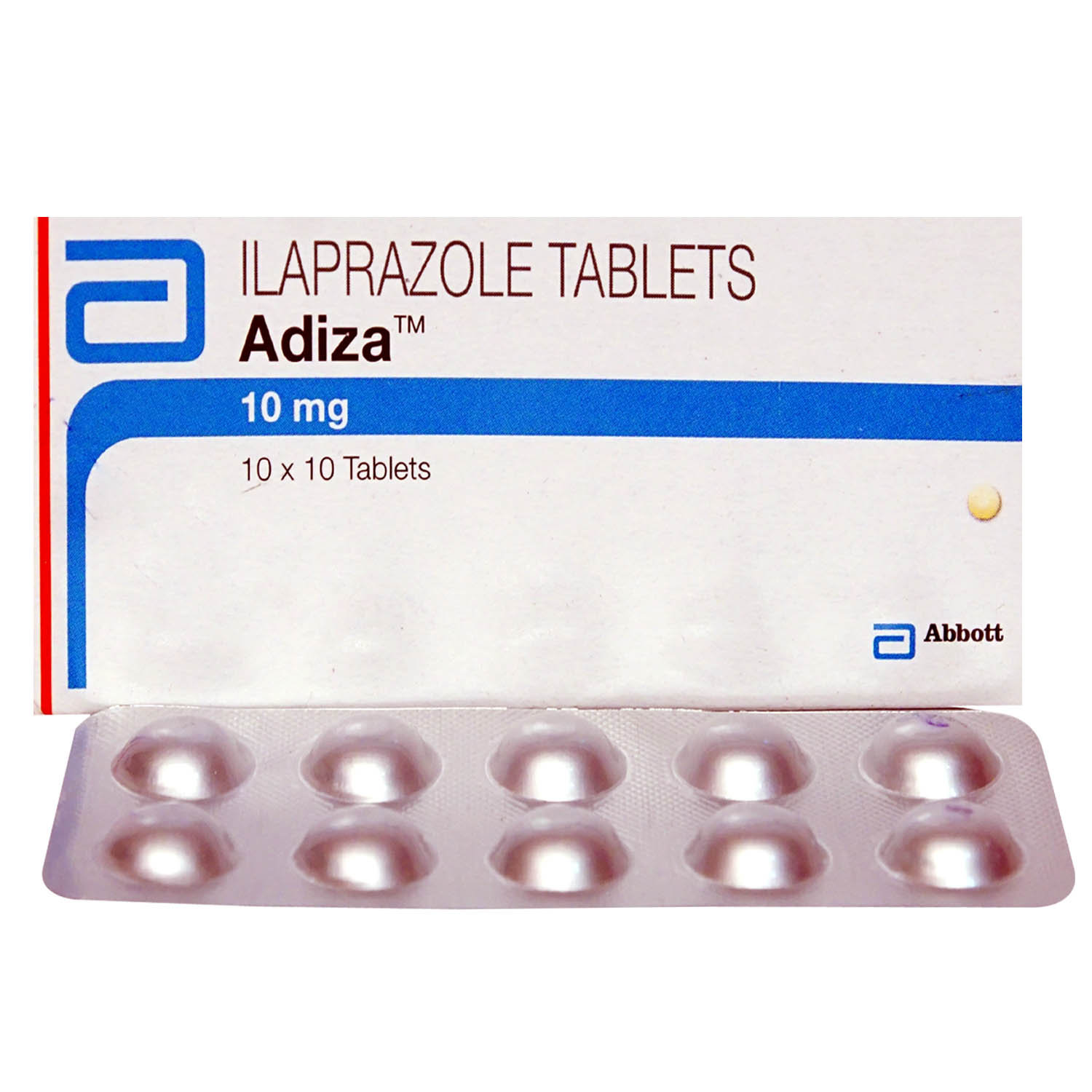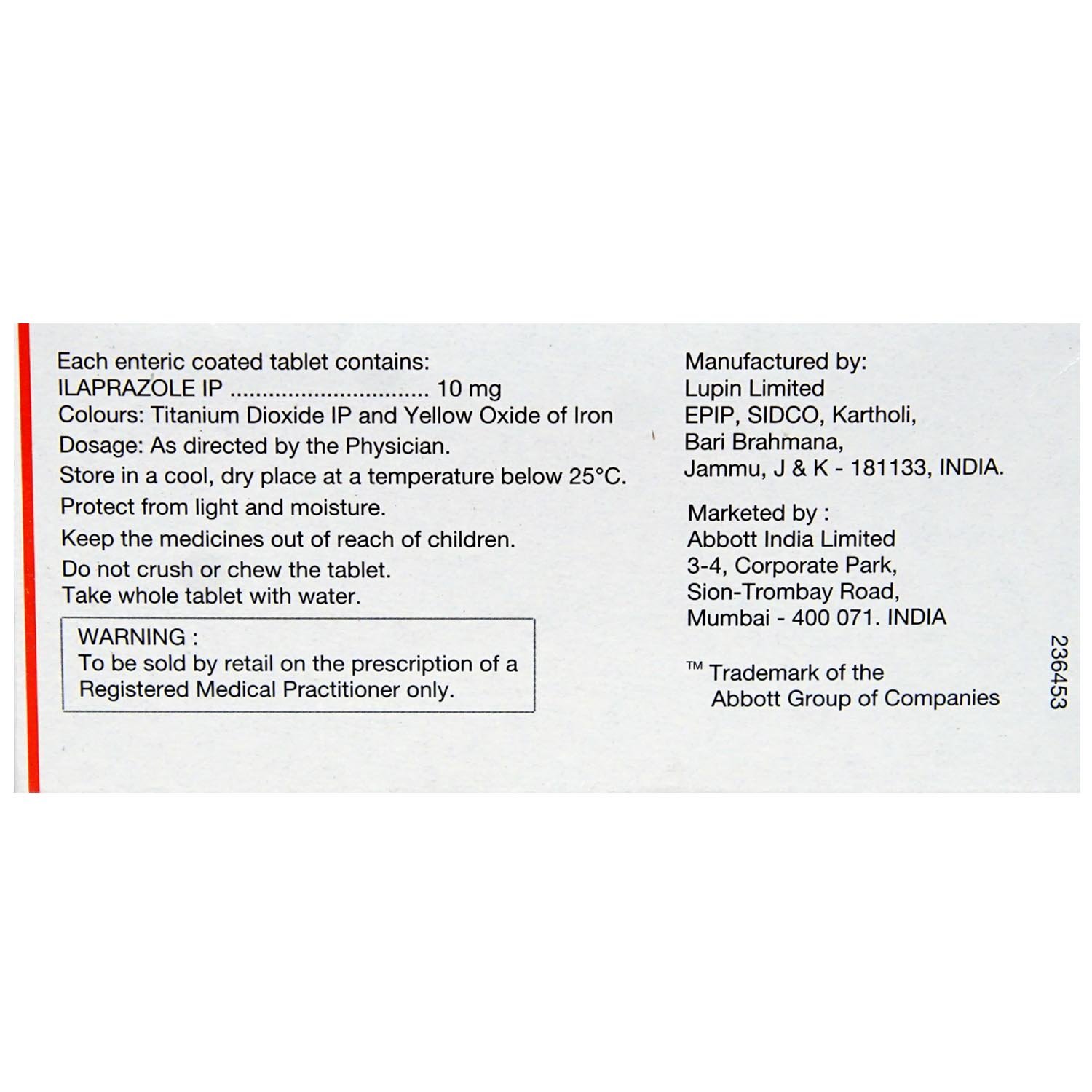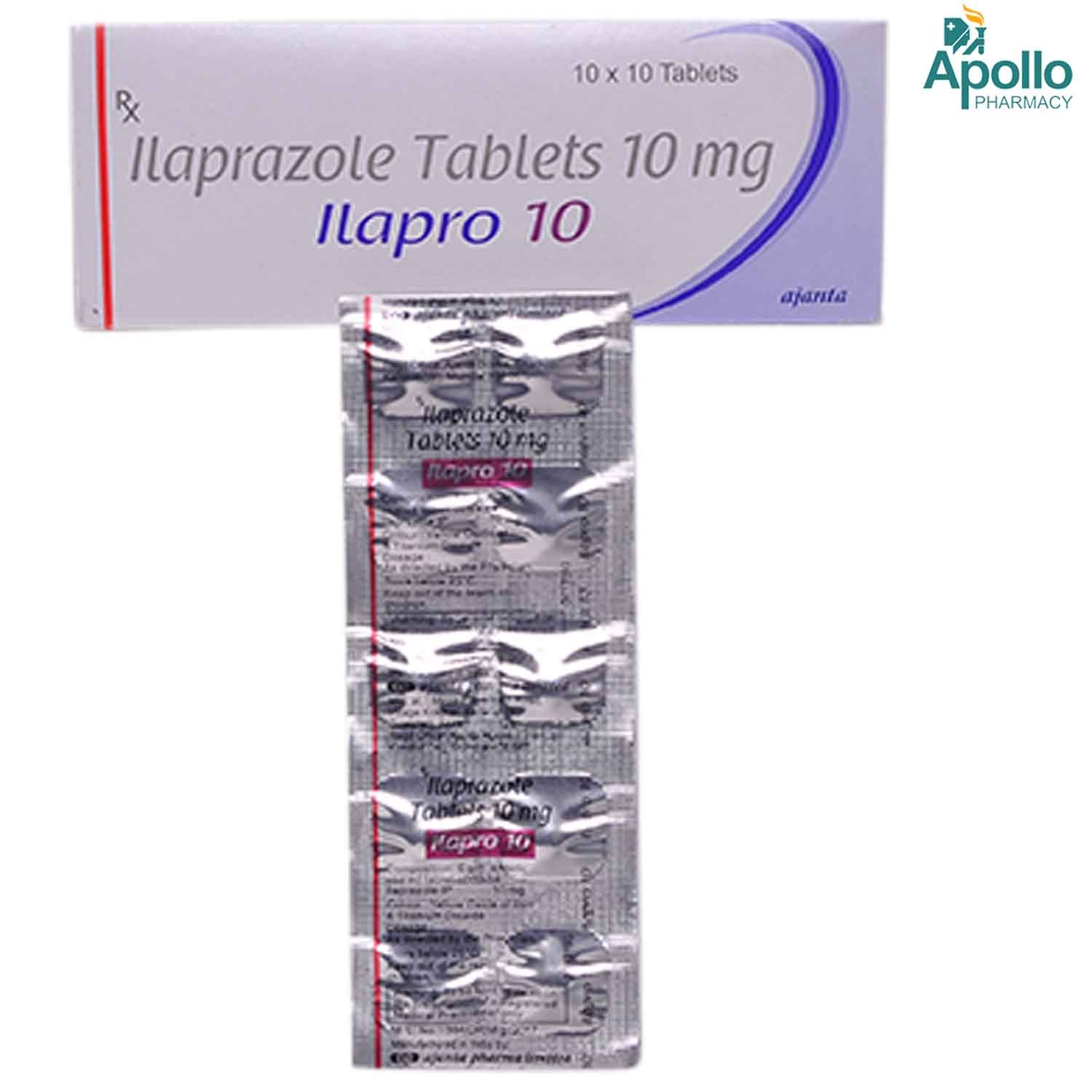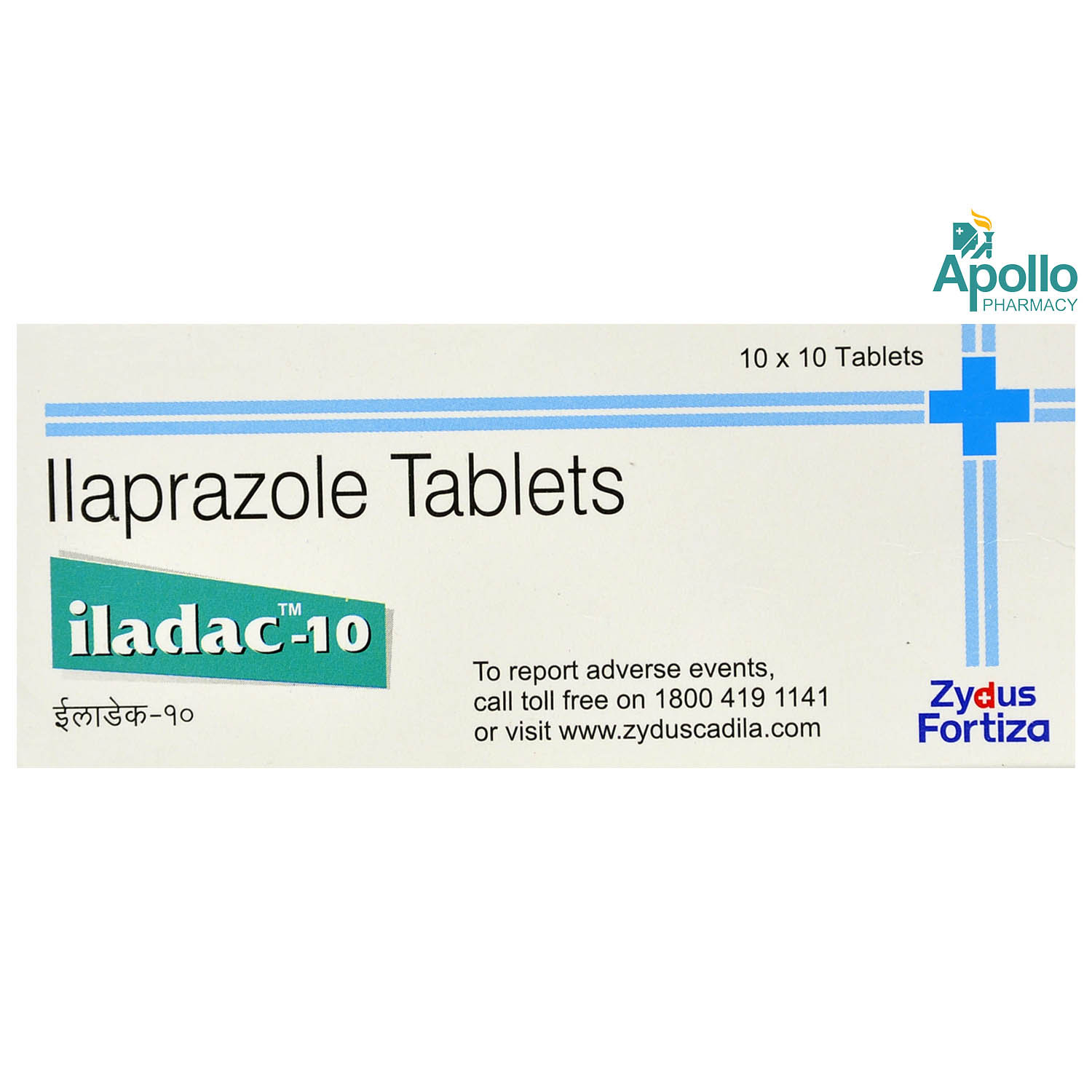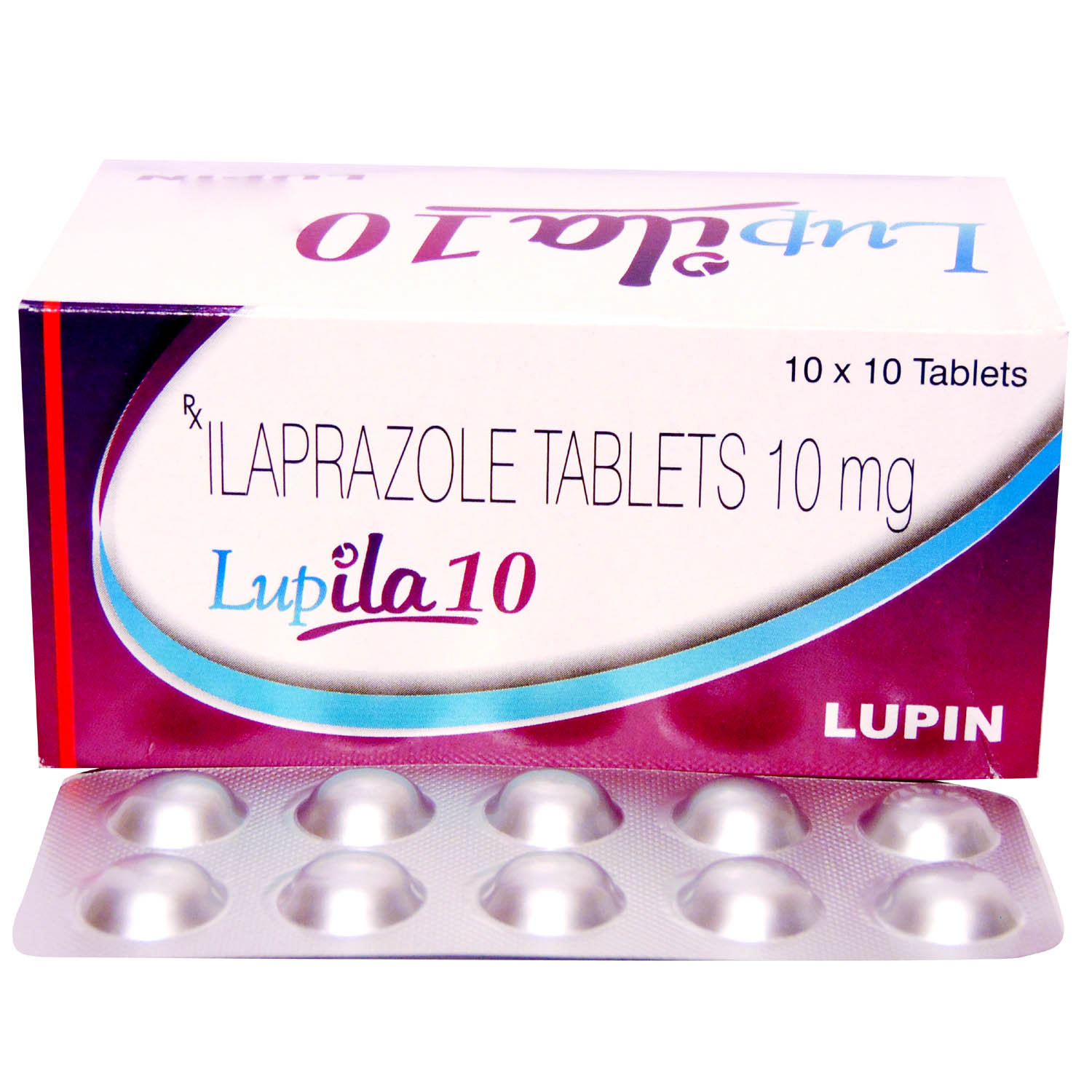Adiza Tablet 10's
MRP ₹126.44
(Inclusive of all Taxes)
₹19.0 Cashback (15%)
Provide Delivery Location
Online payment accepted
 Prescription drug
Prescription drugWhats That
Composition :
Manufacturer/Marketer :
Consume Type :
Expires on or after :
Return Policy :
About Adiza Tablet
Adiza Tablet belongs to the class of antiulcer medications called 'proton pump inhibitors used to treat peptic ulcers, duodenal ulcers, gastro-oesophageal reflux disease (reflux of gastric contents into the oesophagus) and dyspepsia. Gastric reflux or hyperacidity occurs when our stomach produces a large amount of digestive acid, irritating the sphincter located at the stomach's tip. Thus, a damaged sphincter leads to the backflow of digestive acid into the food pipe, causing heartburn and ulcer.
Adiza Tablet contains 'Ilaprazole', which works by blocking the action of the enzyme known as the gastric proton pump responsible for the production of acid. This reduces the amount of acid produced, heals the ulcers and prevents the formation of new ulcers. Thus, Adiza Tablet prevents symptoms of hyperacidity which includes heartburn and indigestion.
Adiza Tablet should be taken as prescribed by the doctor. In some cases, you may experience common side effects such as headache, dizziness, diarrhoea, constipation, nausea, vomiting, flatulence (wind), weakness, flu-like symptoms, back pain, aches, infection, difficulty sleeping, cough, sore throat and runny nose. Most of these side effects do not require medical attention and resolve gradually over time. However, you are advised to talk to your doctor if you experience these side effects persistently.
Inform your doctor before taking Adiza Tablet if you have a stomach tumour, liver disease or if you are due to have Chromogranin A blood test. In long-term treatment, Adiza Tablet may cause low magnesium and vitamin B12 levels and increase the risk of bone fractures. Do not take Adiza Tablet if you are pregnant or breastfeeding. Adiza Tablet may cause dizziness and sleepiness, so drive only if you are alert. Adiza Tablet should not be given to children as safety has not been established. Avoid consuming alcohol during the treatment as Adiza Tablet can increase drowsiness and stomach acid production. Keep your doctor informed about your health condition and medicines to rule out any side effects.
Uses of Adiza Tablet
Directions for Use
Key Benefits
Adiza Tablet belongs to a group of antiulcer medicines called proton pump inhibitors. Adiza Tablet is used to treat duodenal ulcers, gastro-oesophageal reflux disease (reflux of gastric contents into the oesophagus), heartburn and erosive oesophagitis (acid-related damage to the lining of the oesophagus). Adiza Tablet works by blocking the action of the enzyme known as the gastric proton pump responsible for the production of acid. This reduces the amount of acid produced, heals the ulcers and prevents the formation of new ulcers.
Storage
Drug Warnings
Do not take Adiza Tablet if you are allergic to any of its contents. Inform your doctor before taking Adiza Tablet if you have a stomach tumour, liver disease, or if you are due to have Chromogranin A blood test. In long-term treatment, Adiza Tablet may cause low magnesium levels and vitamin B12 levels and increase the risk of bone fractures; the doctor may advise regular tests to monitor your condition. Do not take Adiza Tablet if you are pregnant or breastfeeding. Adiza Tablet may cause dizziness and sleepiness, so drive only if you are alert. Adiza Tablet should not be given to children as safety has not been established. Avoid consuming alcohol and Adiza Tablet as it could lead to increased drowsiness and elevate stomach acid production. Prolonged intake of Adiza Tablet is linked with a greater risk of Clostridium difficile-associated diarrhoea, so if you develop diarrhoea that does not improve, immediately consult a doctor. Keep your doctor informed about your health condition and medicines to rule out any side effects.
Drug-Drug Interactions
Drug-Drug Interactions
Login/Sign Up
Drug-Food Interactions
Drug-Food Interactions
Login/Sign Up
Diet & Lifestyle Advise
- Eat smaller meals more often.
- Avoid smoking and alcohol consumption. Alcohol intake leads to increased production of stomach acid, thereby increasing acidity and heartburn.
- Maintain a healthy weight by regular exercising.
- Avoid lying down after eating to prevent acid reflux.
- Avoid tight-fitting clothes as it might increase the pressure on the abdomen leading to acid reflux.
- Practise relaxation techniques and avoid stress by doing yoga or meditation.
- Avoid foods such as high-fat, spicy chocolates, citrus fruits, pineapple, tomato, onion, garlic, tea and soda.
- Avoid sitting continuously, as it may trigger acidity. Take a break of 5minutes break every hour by doing brisk walking or stretching.
Side Effects of Adiza Tablet
- Headache
- Dizziness
- Diarrhoea
- Constipation
- Nausea, vomiting, flatulence
- Weakness
- Flu-like symptoms
- Back pain, aches,
- Infection
- Difficulty sleeping
- Cough, sore throat and runny nose
Habit Forming
Therapeutic Class
All Substitutes & Brand Comparisons
RX
Out of StockChekcid 10 mg Tablet 10's
Aristo Pharmaceuticals Pvt Ltd
₹69.41
(₹6.25 per unit)
45% CHEAPERRX
Out of StockHI-Five Tablet 10's
Akumentis Healthcare Ltd
₹79
(₹7.11 per unit)
37% CHEAPERRX
Out of StockIlanew 10mg Tablet
Future Pharma Pvt Ltd
₹85
(₹7.65 per unit)
32% CHEAPER
Author Details
We provide you with authentic, trustworthy and relevant information
Drug-Diseases Interactions
Drug-Diseases Interactions
Login/Sign Up
FAQs
Drug-Drug Interactions Checker List
- ZOLPIDEM
- DIAZEPAM
- AMITRIPTYLINE
- CYANOCOBALAMIN
- METHOTREXATE
- ITRACONAZOLE
- KETOCONAZOLE
- ATAZANAVIR
- LEVOTHYROXINE SODIUM
- CLOPIDOGREL
- DULOXETINE
- NAPROXEN
Special Advise
- Inform your doctor before taking Adiza Tablet if you are due to have Chromogranin A blood test.
- Adiza Tablet may cause abnormal blood and liver enzyme values. Inform the person doing the tests that you are taking Adiza Tablet .
- Long-term use of Adiza Tablet may cause an increased risk of bone fractures, stomach infections and vitamin B12 deficiency. The doctor may advise regular tests to monitor your condition.
Disease/Condition Glossary
Acid reflux: The stomach is usually protected from the acid by a mucous layer. In some cases, the mucous layer gets eroded due to excess acid production, which leads to complications like acidity, GERD, heartburn and peptic ulcer. Gastroesophageal reflux disease (GERD) is a condition that occurs when stomach acid frequently flows back into the food pipe (oesophagus). This backflow (acid reflux) irritates the food pipe and causes heartburn. A duodenal ulcer is a painful condition followed by the development of sores or ulcers in the duodenum or stomach lining (the first part of the small intestine, i.e., the duodenum).

Have a query?
Alcohol
Safe if prescribed
Avoid consumption of alcohol while taking Adiza Tablet . Alcohol intake leads to increased production of stomach acid, thereby increasing acidity and heartburn.
Pregnancy
Consult your doctor
Adiza Tablet is not recommended for use in pregnant women unless necessary. Before taking this medicine, the risks and benefits should be discussed with the doctor.
Breast Feeding
Consult your doctor
This medicine is not recommended for use in breastfeeding women unless absolutely necessary. Before taking this medicine, the risks and benefits should be discussed with the doctor.
Driving
Safe if prescribed
Adiza Tablet may cause dizziness and sleepiness. Do not drive or operate machinery unless you are alert.
Liver
Consult your doctor
Not enough data is available on the interaction between Adiza Tablet and liver function. Dose adjustment may be needed in patients with liver impairment. Please consult your doctor if you have a liver impairment or any concerns.
Kidney
Consult your doctor
Not enough data is available on the interaction between Adiza Tablet and kidney function. Dose adjustment may be needed in patients with kidney impairment. Please consult your doctor if you have kidney impairment or any concerns.
Children
Safe if prescribed
Adiza Tablet should not be given to children as safety and effectiveness were not established.

